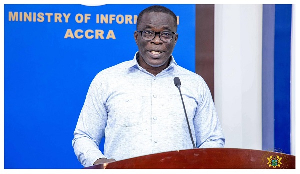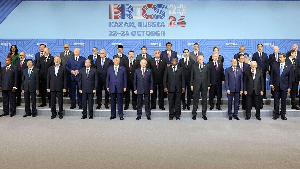Accra, Aug. 6, GNA - A three-day workshop aimed at mainstreaming gender issues into health care delivery opened in Accra on Monday with a call on health providers to pay more attention to factors which influenced women's health.
The workshop has brought together over 30 participants across the country to discuss a draft on gender and health policy, develop strategies to mainstream gender into health delivery system as a way of moving the issue forward within the Ghana Health Service (GHS). Dr Elias Sory, Director-General of GHS, who opened the workshop, said gender mainstreaming cut across socio-cultural roles and biological differences between men and women, adding that the different reproductive functions had led to different health problems and needs. "This calls for well entrenched gender mainstreaming policies to cater adequately for the different health needs of both men and women." He said the GHS was looking at family health promotion, as another alternative health care to shape the country's health needs, adding that there should be
a way of ensuring that policies and programmes took into consideration the different health needs of men and women.
Dr Sory called on the participants to develop a policy document that would be implemented to help the GHS to provide basic but important gender mainstreaming information at all levels of health care delivery.
He said the Ministry of Health in 1999 developed a document titled; "Promoting Gender Equity in health: A framework for Action" to highlight some of the gender issues in the health sector. Subsequently in 2005, the GHS formed a gender advisory committee to develop strategies on how to advance the issue.
Dr Sory said addressing the inequalities in the health sector required creating a health system that was responsive to the needs of men and women at all levels and advised them to work on guidelines that would ensure gender sensitivity.
Dr Frank Nyonator, Director Policy, Planning, Monitoring and Evaluation of GHS, advised health care providers to change their thinking and attitude towards clients to achieve a balance in health care delivery.
"No longer assume that both men and women are (the same)", he said and called on them to build capacity towards gender mainstreaming. Participants would also look at analysing health problems from the gender perspective, health programmes, policies and projects, and integrating gender into work. 6 Aug. 07
Health News of Monday, 6 August 2007
Source: GNA
















